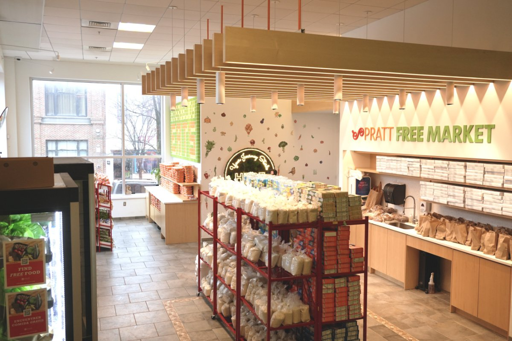More than 50 people stood outside the Enoch Pratt Library’s Southeast Anchor branch on a recent spring morning in Baltimore. Parents with small children, teenagers, and senior citizens clustered outside the door and waited to hear their ticket numbers called.
They weren’t there for books—at least, not at that moment. They came to shop for groceries.
Connected to the library, the brightly painted market space is small but doesn’t feel cramped. Massive windows drench it in sunshine. In a previous life, it was a café. Now, shelves, tables, counters, and a refrigerator are spread out across the room, holding a mix of produce and shelf-stable goods.



Food should all be free.
We make more than twice the food we consume just to throw it away.
But starvation is profitable.
All artificial scarcity is profitable, that’s why access is limited and sold.